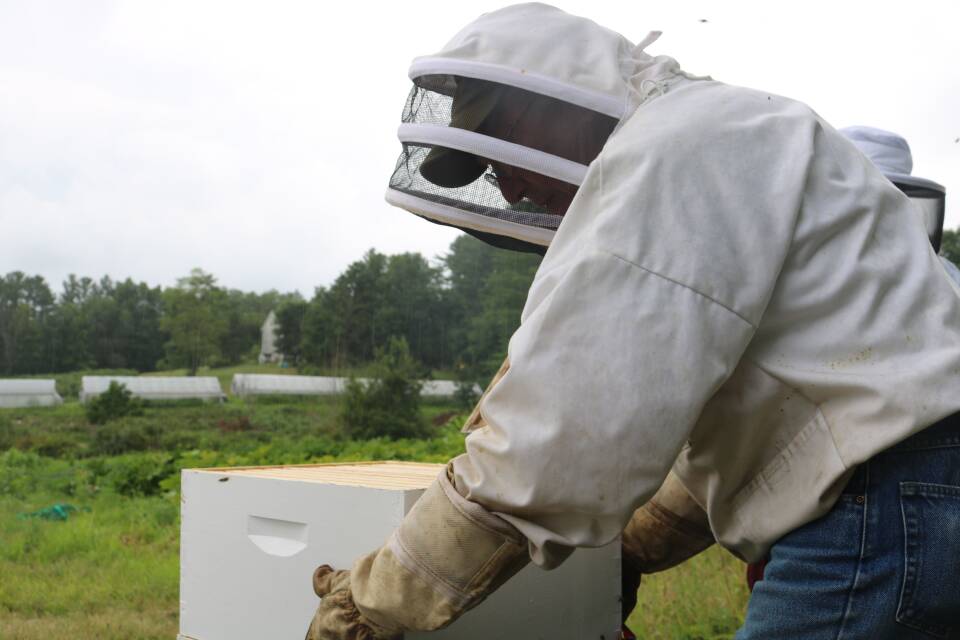Governors from across New England and their counterparts from several provinces in eastern Canada are pledging to work together on a regional approach to climate change.
The governors and premiers met Tuesday at Boston University, where they signed resolutions reconvening a pair of binational committees focused on energy and the environment.
Gov. Maura Healey, who hosted the gathering — and brought the group to a Red Sox game Monday night — said the committees will allow for a consistent stream of cross-border communication, hopefully leading to larger-scale progress areas like in the transition to clean power.
“We’ve had success with regional collaboration on energy issues. We will apply that same model to climate change adaptation, protecting our natural resources and food security,” Healey said. “With these two resolutions, we stand before you today stronger as a region ready to tackle the big issues on the horizon.”
Govs. Janet Mills of Maine, Phil Scott of Vermont, Daniel McKee of Rhode Island and Ned Lamont of Connecticut joined Healey for the summit, as did officials from Quebec, New Brunswick, Nova Scotia, Prince Edward Island, and Newfoundland and Labrador.
Before Tuesday’s closed-door meetings, which Healey’s office said focused on the offshore wind supply chain and “hard-to-decarbonize” economic sectors, the group visited the Massachusetts Maritime Academy on Monday to tour facilities used to train offshore wind workers.
The event was the 45th annual gathering of the New England governors and Eastern Canadian premiers.
Andrew Furey, the premier of Newfoundland and Labrador, said the talks allow for deep relationship-building so that policy work can be “strategic and visionary,” rather than transactional.
“Several governors, actually, and premiers today said that the region is more than shared geography and shared resources. It truly is a family,” Furey said. “And when you’re tackling the complex challenges and problems that exist in the world today, including changing geopolitical tensions, energy demands and how we’re going to tackle the big problems of climate change, that can only be strengthened when you have a familial relationship like we do amongst us.”
Furey is set to host next year’s meeting in his home province.
This year’s conference came on the heels of Healey and McKee last week announcing a coordinated procurement of nearly 2,900 megawatts of offshore wind. Officials say that’s enough energy to power more than 1 million Massachusetts homes and another 125,000 in Rhode Island.
Massachusetts, Rhode Island and Connecticut had originally agreed to join forces in soliciting bids for wind projects, but Connecticut sat out Friday’s joint announcement.
“In terms of what Connecticut is going to do, I don’t know,” Healey told reporters Tuesday. “I know they’re still evaluating that. I hope they join.”
The New England Energy Coalition, which bills itself as a “coalition of taxpayer watchdog non-profit organizations,” called on the governors to address cost concerns associated with transitioning to renewable energy. The coalition includes Americans for Prosperity, Massachusetts Fiscal Alliance, Rhode Island Center for Freedom & Prosperity, Josiah Bartlett Center for Public Policy, Maine Policy Institute, Yankee Institute, and Wind Action of New Hampshire.
“Affordable, reliable energy is a key driver of prosperity and economic opportunity,” Ross Connolly, the northeast region director for Americans for Prosperity, said in a statement. “It drives our economy and increases the quality of life for all Americans. The Governors and Premiers should be focused on the well-being of their citizens, not ideology.”








